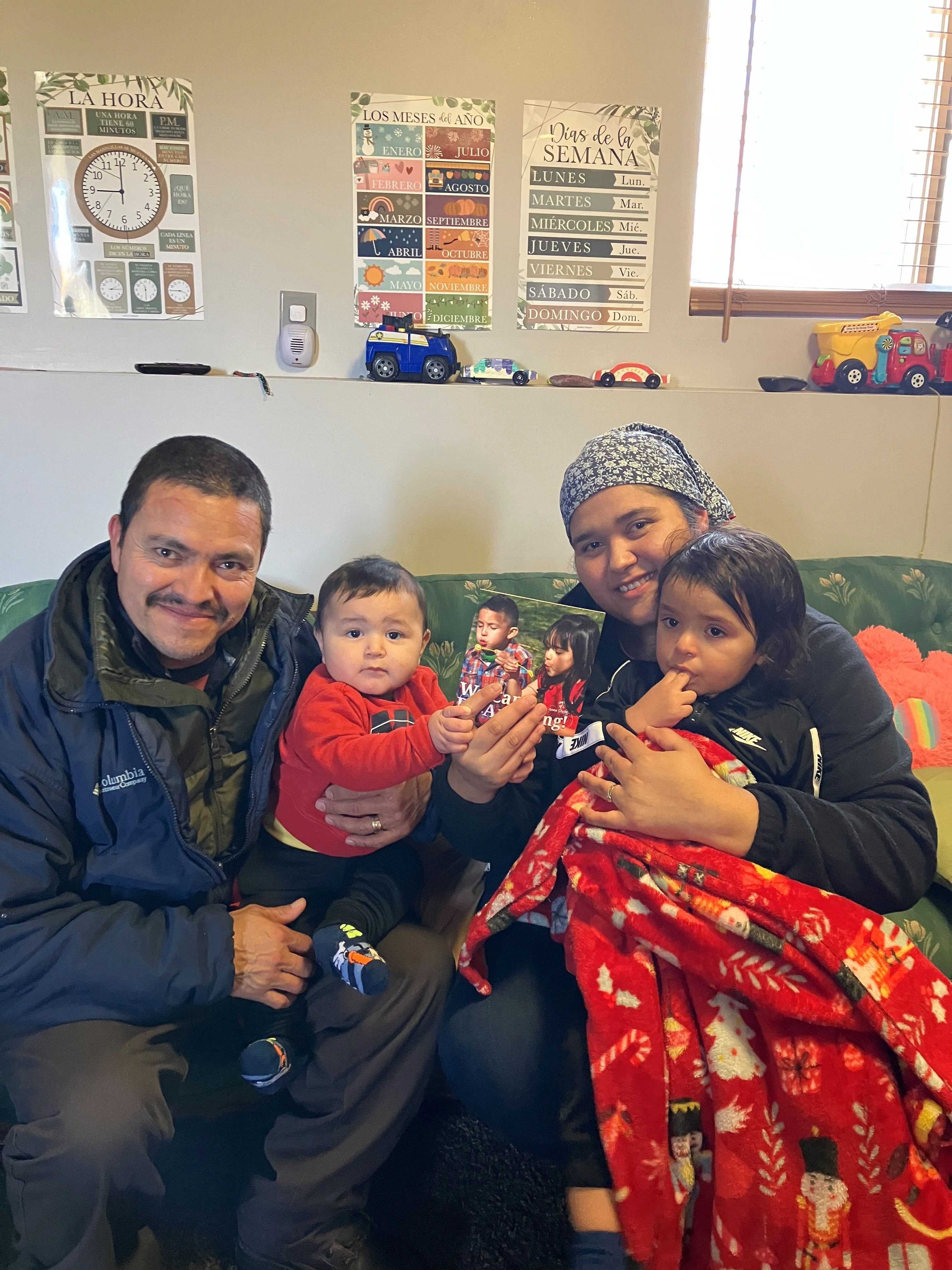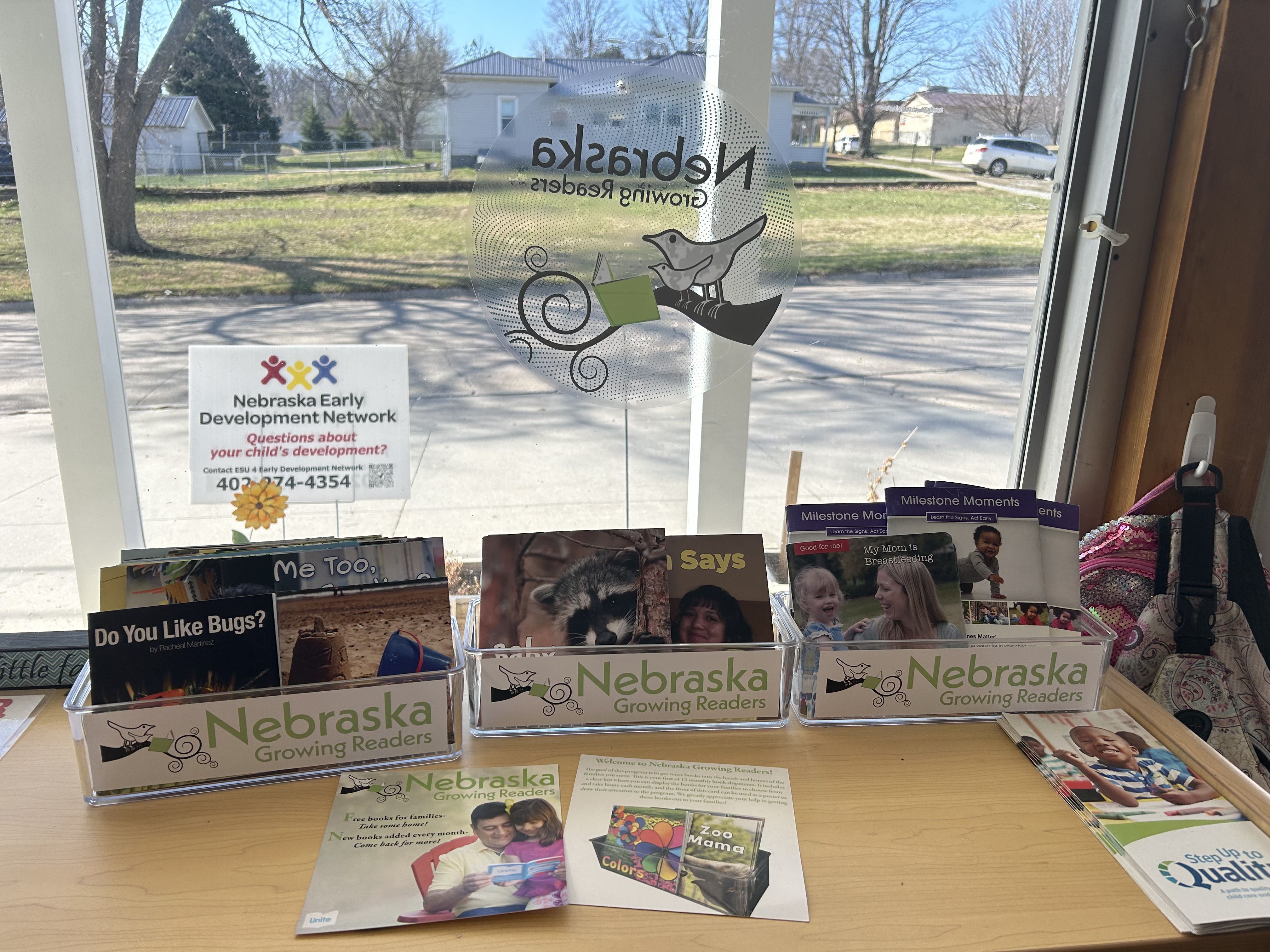
Liam Al-Hindi explains that students in the Metropolitan Community College Adult Education program take standardized testing when they reach 40 hours of instructional time in a class. Al-Hindi is one of a group of dedicated instructors at Metro who teach Adult Education classes to English-language learners as part of the North Learning Community Center Parent University. He says, “we all love what we do!”
He goes on to explain that students test at different times because they can gain instructional hours from work outside the classroom. Two students recently hit the 40-hour mark, and when their test results came back, Al-Hindi says, “both of them showed really promising gains in reading.” As part of his testing process, Al-Hindi holds individual debriefs with students to find out what has been working and what hasn’t. When he spoke with the two students separately, he said, “You’re reading went up a lot. Can you tell me what you’ve been doing, because it works?” Both of them, he reports, said that using Nebraska Growing Readers books helped a lot, adding in a subsequent meeting that they said they particularly enjoyed reading to their children.
The Nebraska Growing Readers (NGR) program has aimed primarily at providing free books for licensed childcare providers who can share them with their families, but the books have also been distributed to other organizations where children and families can access them. Al-Hindi said he learned of the program in December of 2023 when his Director showed him the books, which they thought could be useful for the adults in ESL classes to use. The books were made available in the Metro library and, in February, Al-Hindi and other instructors began handing books out to their students. He says that his students take books home to read to their children and to use in practicing their study of English.
When asked why he thinks the books are an effective tool for enhancing the curriculum, Al-Hindi picks one up and points to a page: “I really like that every page has an image. That means the book wears its topic on its sleeve.” He explains that for beginning learners complexity not only in language but also in layout can be daunting to readers and may discourage interacting with a text. He again refers to the book and points to the large simple blocks of text, the colorful photos, even the compact size of the book as advantages. “I can hold this with one hand,” he says, “making it ideal for reading to a person or to a group.” The books work well then as classroom examples of lessons he’s teaching, but also as at home practice when parents want to read to their children.
Al-Hindi works hard at developing an engaging curriculum because, as he emphasizes, “it’s one thing for students to be learning the language and it’s another thing for students to love learning the language.” He sees potential in sharing the two students' reading plan and success with his other students. He shares that the 6 weekly hours of class “mean so much more if there is the brief daily practice with the books.” He says it can be an “uphill battle” at times to make reading fun, but adds, “if I have a few students excited about these books, that’s contagious. It’s easier for more students to be excited about the books.”
One very interesting point he makes aligns with a primary goal of Nebraska Growing Readers. Since its start, NGR has focused on the importance of getting books into the home, and Al-Hindi says he likes their “perpetual presence in the students’ lives.” “They now occupy physical space in their homes. The commitment is small, so they aren’t daunting.” He says that their brevity also allows a moment of practice to become a family bonding moment: “if it’s a book their children like, it’s very easy to take 3 minutes to go through the book with their children.”
Al-Hindi has plans to build from the NGR book format as his students progress. Once they master reading the texts, he wants to provide blank page templates and ask students to pick an NGR book they like. He says he will ask them to write a page that continues the theme of the book and is consistent with its vocabulary and grammar. He even sees this as a family project where the student would provide text and children could add photos or illustrations. When he’s told of the upcoming NGR workshops for authors who will produce Nebraska-related texts for NGR, he is excited by the potential for his students to produce texts that might become part of the NGR library. He says, “having students actually write about things they care about, this produces gains!”
The gains his students have made are certainly a result of the passion he has for his work and the curriculum he and his colleagues have developed, but NGR books have become a valuable tool in that process. The future promises even more interesting uses of the books and, perhaps, more promising test results from his students. We could soon be reading NGR books his students have produced and those students will have, in Al-Hindi’s words, “a thing that occupies space in their home that is an English book.” Books in the home, successful reading habits, a personal connection to literacy, family reading, that is what Nebraska Growing Readers is all about.

